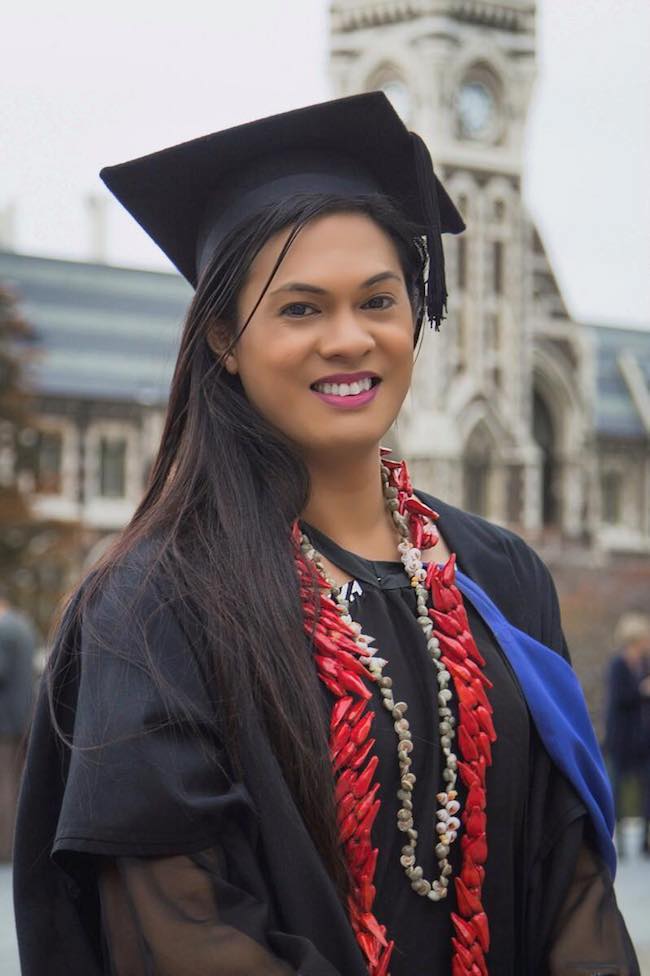 Jaye Moors has been working hard to reveal some of the underpinning genetics of cardio-metabolic disease in Māori and Pasefika, and now she is able to start giving back to her community.
Jaye Moors has been working hard to reveal some of the underpinning genetics of cardio-metabolic disease in Māori and Pasefika, and now she is able to start giving back to her community.
The New Zealand-born Samoan researcher is currently writing up her PhD thesis on her investigations into Polynesian-specific genetic variants of cardio-metabolic disease in Māori and Pasefika communities in New Zealand. This project has been supported by a prestigious Health Research Council Pacific PhD scholarship.
In her research, Jaye identified a Polynesian-specific variant of a gene involved in cholesterol metabolism and showed that it associated with an increase in 'good cholesterol' (HDL) and a decrease in the 'bad cholesterol' (LDL) in the Polynesian population of New Zealand.
She also helped reveal that in Pasefika teenagers in New Zealand, increased alcohol consumption is associated with increased BMI, which in turn is associated with well-established risk factors for cardio-metabolic disease.
A recently-announced HRC Pacific Health Knowledge Translation Grant will help Jaye to tell people about her research findings.
The grant will support her to publish the results in traditional academic journals, making them accessible for all researchers to learn from and build upon.
But the grant will also help Jaye to organise meetings or “fono” (in Samoan) to tell the subjects of her research and their communities about what she has found out and how they can use that knowledge to improve their health. This is a particularly valuable way to share research findings that most biomedical PhD students either don't consider or are not able to pursue.
After finishing her PhD, Jaye will be carrying out research into post-stroke neuroregeneration using RNAseq techniques with Dr Andrew Clarkson of the Department of Anatomy.
Long-term, however, she plans to continue research into the genetics of disease in Pasefika populations.
"I would like to continue training in the space of identifying Polynesian-specific genetics of cardio-metabolic disease and applying my skills to improving the health of Pasefika people to decrease disparities and inequities. I am passionate about wanting to work with Pasefika communities and also ensuring the research directly benefits the health of our communities," she says.
“Understanding biology, and how our bodies work is crucial. We know that cardio-metabolic conditions have a genetic predisposition, and our research may help destigmatise them, highlighting that our communities affected are not at fault. This research is important to removing the shame associated with these cardio-metabolic conditions so that our Māori and Pasefika people may take ownership of their health.”
"The work is [also] important because everyone in New Zealand deserves biologically informed healthcare.”
Jaye is grateful for the ongoing support of her family, friends and supervisors as she works towards her vision.